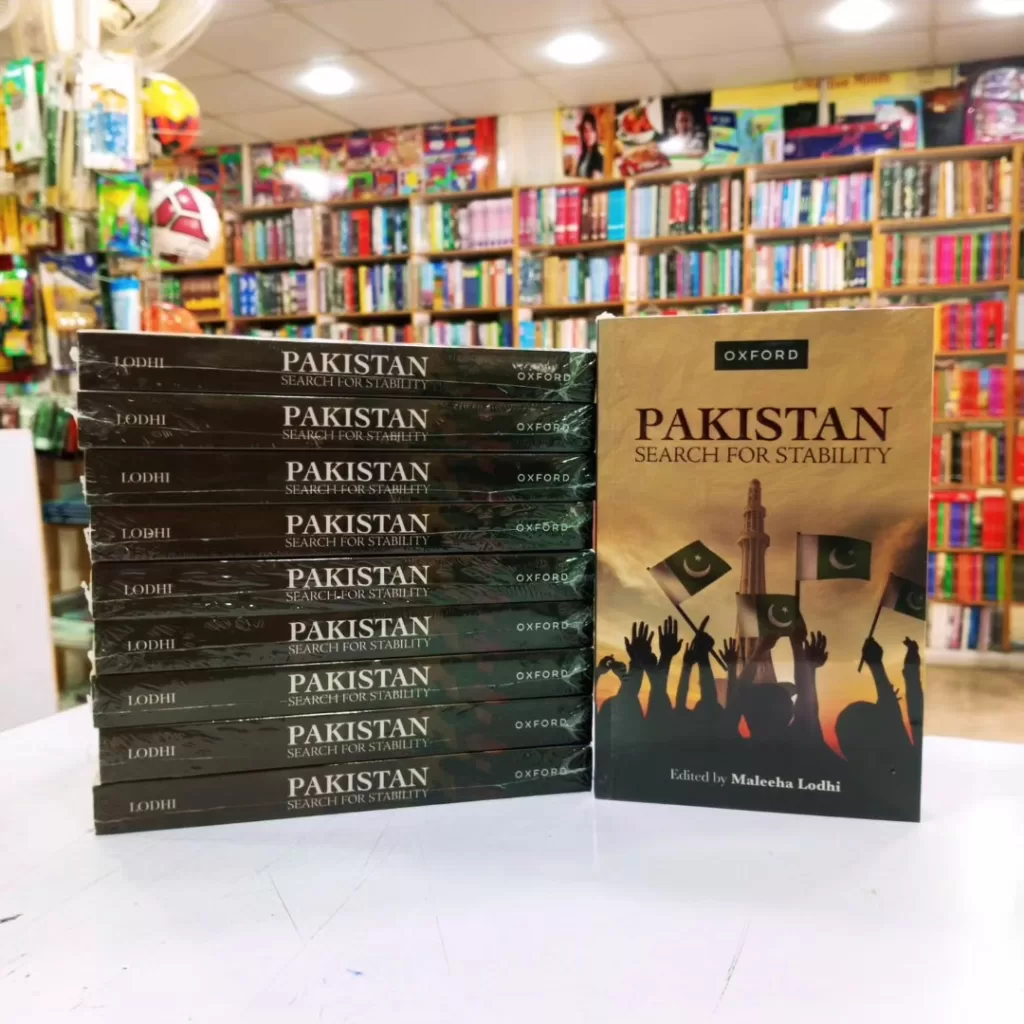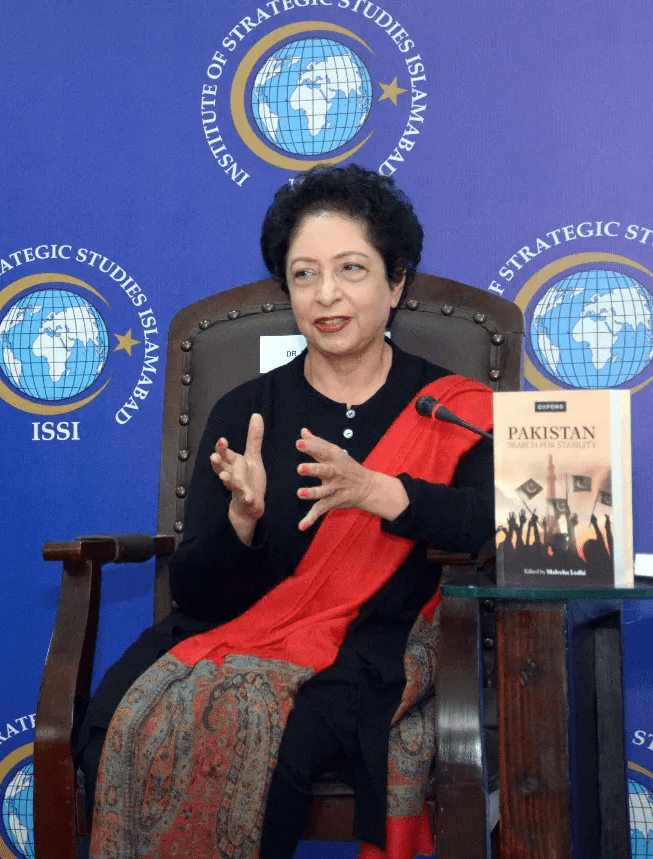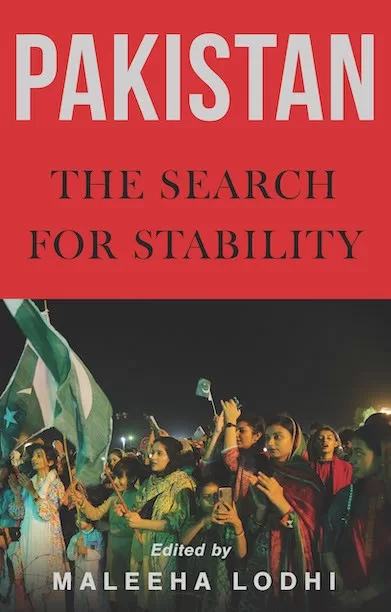“Pakistan: Search for Stability” is an insightful account of various arguments concerning Pakistan’s quest for managing its political, social, and economic stability while examining the mainstream challenges to its vision of political strength, economic development, and social prosperity. The book highlights various challenges that hinders the country’s potential for becoming a strong nation in regional and extra-regional affairs with the support of internal stability. It is an edited book compiled by a prominent figure of Pakistan’s diplomatic community, Maleeha Lodhi, who is commonly known in the intellectual circles of Pakistan as a renowned former diplomat and a well-known political scientist.
Ambassador Lodhi was also the first woman to serve as Pakistan’s Permanent Representative to the United Nations. The potential of Lodhi in diplomacy enabled her to serve the key positions of the country’s diplomatic forces around the world. In addition to her incomparable capabilities in academia and diplomacy, her attachment to the country’s two well-reputed English newspapers, The News International and The Muslim, proved the journalistic traits of Lodhi at the national and international levels. The formal recognition of her diverse and exceptional professional skills qualified her to become a recipient of the President’s Award of Hilal-e-Imtiaz for Public Service in Pakistan. Akin to Lodhi’s previous edited work Pakistan: Beyond the ‘Crisis State’ published in 2011, the book under review reflects her latest analysis of Pakistan’s internal and external challenges. The arguments of different authors in respective chapters showed that the intellectual circles of Pakistan have accepted the significance of non-traditional challenges in the contemporary international system, as the book’s core argument identifies. This argument underlines the multiplying tendencies of several non-traditional security challenges of Pakistan, seeking appropriate policy responses from the mainstream government authorities. In this way, the debate in the book’s chapters mainly highlights Pakistan’s internal problems and their inseparable associations with the potential challenges originating from regional and extra-regional affairs.
The main structure of this book is comprised of nineteen short research essays written by renowned figures of Pakistani intellectual circles linked with distinguished areas of the country. In addition to a few introductory and concluding pages of the book, its main analytical arrangement is divided into four parts related to Pakistan’s politics, economy, society, and foreign policy. The interesting debate emerges from the book’s third part, which comprises of six chapters; these chapters deal with the societal problems of Pakistan in which the issues of directionless youth bulge, the financial crisis of the education sector, the spread of fanatical ideologies, the problem of women empowerment, environmental degradation, and unregulated population growth are highlighted by six different authors.
The six experts analyses on societal issues make this book one of the incomparable studies of Pakistan and its internal security problems. In this way, the book’s focus on the nation’s societal problems proved the distinctiveness of its analysis in the existing academic debates on Pakistan’s internal problems and their practical solutions on rational grounds. The inclusive approach of different authors in these six chapters offers a holistic overview of several challenges and opportunities for the Pakistani nation. Besides societal fault traces, the book’s first two parts wisely describe Pakistan’s political and economic difficulties emerging from diverse directions. The debate on Islamabad’s conventional foreign policy framework describes the contemporary framework of Pakistan’s foreign policy and the positions of China, India, the United States, and Afghanistan in shaping specific patterns of Islamabad’s relations with the outside world. Apart from overlooking the status of the Muslim world in Pakistan’s foreign policy, a brief history of the Islamabad-Moscow bilateral multidimensional collaboration is missing in the book’s last part, which focuses on Pakistan’s foreign policy.

Thus, the chronological and thematic surveys of Pakistan’s foreign relations in the last four chapters, under the debate of foreign policy, missed several realities of contemporary world politics, where India is introducing its realignment under several mini-lateral approaches of foreign relations. So, the discussion on foreign policy followed a traditional way of analyzing Pakistan’s foreign relations on certain fixed dimensions. The rest of the topics covered in the book’s other chapters explored the sufficient depth of literature and analysis aligned with the hardcore realities of the contemporary international system.
The inclusion of updated information and convincing facts have enhanced its significance in the existing literature discussing Pakistan’s ongoing challenges and the government’s determination to overcome these challenges. The book is a timely publication providing historical and contemporary analysis based on well-researched and rationally-grounded arguments concerning Pakistan’s post-partition history and its vital relevance to the present crisis. The author’s unbiased and independent approach enables her to cogently accept Pakistan’s present problems, which are comprised of instable political patterns and their undeniable connections with the economic difficulties of the nation. Furthermore, the mainstream internal and external security concerns of the state are rationally acknowledged by all authors in their varying viewpoints on different topics. It establishes a common ground among the book’s contributing authors, and the analyses in all chapters agree on Islamabad’s pursuit of stability and its firm reliance on the formal legislative measures of the government. In this way, another common point emerges from all authors’ reluctance to highlight the prevailing gaps between the government’s visionary policies and their appropriate application in the required directions.
The political leadership’s inability to bridge these gaps further multiplies the multilayered problems of the nation, as the book’s investigation opines. The overall analytical context of the book suggests that it is a focused, policy-oriented study with specific procedural recommendations for addressing Pakistan’s idiosyncratic problems. This feature of the author’s edited work makes it a considerable intellectual exercise with specific practical guidelines for transforming the conventional political wisdom of the state authorities.

Based on the above, it can be maintained that the book’s author has aimed to present a comprehensive analysis of the security challenges faced by Pakistan throughout its history. It tried to describe the relevance of these challenges to present-day issues and explores the political aspirations of the country’s formal government authorities. The book, drawing on the expertise of various authors from diverse intellectual and professional backgrounds, explores Pakistan’s current problems and the government’s capacity to address internal and external security issues of the nation. The insights provided by ambassador Lodhi in the book’s introductory and concluding remarks add credibility and depth to the analysis of the country’s security challenges mentioned in the book.
Thus, the book adopts an impartial and balanced approach in its arguments across all chapters, highlighting potential areas for constructive progress in resolving the nation’s mainstream issues. It is a recommended read for those seeking to grasp Pakistan’s standing in regional and international politics while emphasizing the interconnectedness of both levels with Pakistan’s internal affairs.





